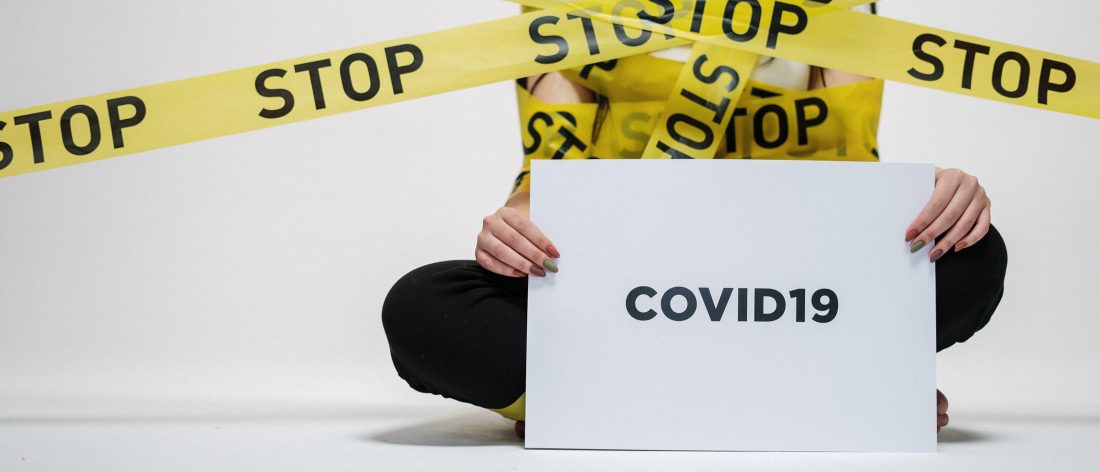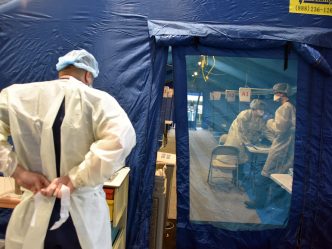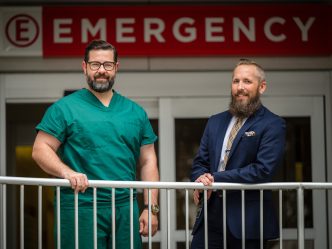For answers to questions not covered in this article, please call 706-721-9365 or email Human Resources.
Updated March 31:
Quarantine status notification and process:
Employee Health & Wellness will be heavily involved in the tracking and documentation of staff, including travel RNs and other contractors who work in our facilities, who are being required to self-quarantine due to the employee exhibiting symptoms of the virus.
As part of this process, it is critical for managers to communicate with Employee Health as an employee discloses they’ve been advised to self-quarantine. Managers should immediately email Employee Health & Wellness.
Employees will be required to self-quarantine away from all USG campuses, and AU Health System locations (to include ambulatory care clinics, etc.) based on the time-period as communicated by Employee Health based on the most current CDC guidelines.
Employees must immediately contact their manager and go off duty if symptoms develop. The manager must notify Employee Health. Once employees are notified of testing results or are placed on isolation, the employee must call Employee Health prior to reporting to their work site. Employees will be released to work based on the current guidance from the CDC and/or an evaluation from a physician or health care provider given to Employee Health.
Augusta University Health System cares about the health and well-being of its patients, visitors and employees. Because of this, and due to the rapidly changing areas of impact, AU Health reserves the right to quarantine any employee who travels to any area at our discretion.
What can I expect if I become febrile while at work and have lower respiratory symptoms and have NOT recently traveled to a high-risk area or been exposed within last 14 days?
You will be asked to wear a surgical mask. Your care team will also wear masks, eye shield/goggles.
Your health care needs will be assessed, and you will be questioned about your symptoms, recent travel and potential exposure in an isolated room. Physicians and nurses will provide the necessary care for your situation, but you will only be hospitalized or require quarantine if they feel you may have contracted COVID-19.
Do I need an N-95 mask?
In most cases, team members, patients and visitors who are not in high-risk areas or in direct contact with high-risk patients will not benefit from wearing an N-95 mask.
Will I be covered by workers’ compensation if I have been identified to provide direct patient care or interaction with patients or others who have the disease, and I become infected in the course of performing my duties?
If an employee contracts the disease in the course of their employment, they may be eligible for workers’ compensation. In particular, this may be an option if the employees’ work requires them to be exposed to persons who are infected. If an employee incidentally contracts the disease from a co-worker, there likely will be no workers’ compensation liability.
Please immediately contact Employee Health if you are an employee of the health system or DOAS if you are an employee of the University. Employee Health can be contacted at 706-721-3418 and DOAS at 404-656-9484.
Am I at high risk for COVID-19?
Our clinical team is working diligently to ensure our patients are receiving the highest quality care in accordance with the procedures and protocols established by the CDC and the Georgia Department of Health. We are also working directly with employees who are responsible for patient care. Please do not hesitate to contact Employee Health, Human Resources or your manager if you have COVID-19 symptoms and you’ve possibly been exposed to the virus.
What can I do to avoid COVID 19?
Follow the CDC guidelines. Focus on hand washing, cough and sneeze etiquette and cleanliness of your areas.
Are precautionary measures being considered/undertaken when planning for visiting lecturers, applicants, Grand Rounds speakers, etc.?
While no specific organizational response has been communicated, it may be recommended to inquire about the guest(s) recent travel to an area affected by widespread community transmission of COVID-19 to determine if a postponement may be recommended or warranted. Many university events have been canceled or postponed.
Are there plans to modify work stations/areas to reduce contact with other employees as a precautionary measure?
Each manager will review and make any necessary changes to work areas. If an employee is concerned about the work station/area, they should consult with their manager.
What can managers across the organization do to help Augusta University be prepared for COVID-19?
Like any emergency situation, managers should have a standing assessment of their team to know which employees are considered essential to continuation of services and which employees may be in a reserve category. All employees of the Augusta University Health System and any of its related entities are considered essential given our patient care mission and our 24/7 operation. For the university, some employees are essential because their duties need to be performed regardless of an emergency or other urgent event, whereas others may have been designated as reserved by their manager. Managers should have this information already and should consult with their immediate supervisor if such a determination has not been made for the department. An employee in a reserved status may be called upon to assist other areas if the need arises.
Are there things I can do to prepare myself and my family during the outbreak?
Everyone has a role to play in getting ready and staying healthy. We will continue to need staff here in our health system to continue the excellent care we provide to our patients. There are actions you can take now to prepare yourself, your family and our community. Follow public health official recommendations for community actions designed to help keep people healthy, reduce exposures to COVID-19 and slow the spread of the disease. The CDC encourages household members to prepare for a COVID-19 outbreak in their community. We encourage employees to:
- Create a household plan of action
- Practice good personal health habits and plan for home-based actions
- Be prepared if your child’s school or child care facility is temporarily dismissed
- Plan for potential changes within your work unit or department.
Additional details are available at the CDC website.
Remember, if you work in the health system, you are considered essential personnel and will be expected to meet your regular work schedule. Please work directly with your manager on any scheduling needs.
What are the current travel plans/restrictions for business and advice related to personal travel?
Due to the fluid nature of this pandemic, employees should strongly consider limiting personal travel at this time. In the health system, we will need all direct patient care providers and ancillary staff to assist in caring for our patients. If you voluntarily choose to travel to highly impacted areas, you will be subject to a mandatory quarantine for 14 days for the health and safety of our patient population. Your manager will need to know of your travel plans, and the manager will need to communicate when and where you will be traveling to Employee Health, as well as your planned return to work date, for tracking and follow-up purposes.
It is recommended that employees delay travel plans to countries categorized as Level II or higher under the guidance of the CDC. In addition, it is recommended that employees critically review any travel plans that could result in exposure. The situation is currently fluid and travel restrictions today could be different by the time one travels and is returning home; thus, employees should plan for possible changes.
Managers and employees should discuss future business travel plans and review the most recent CDC guidelines for high risk classified areas. Business travel should be canceled unless approved by your director, who will be required to secure approval from your VP based on essential business needs. Managers will have the authority to rescind prior travel approval. All employees should exercise good judgment in evaluating travel.
Everyone should keep up to date on the CDC guidelines around travel.
If I travel outside of the U.S., when can I return to work?
Employees returning from countries with known outbreak categorized by the CDC as Level II or higher must quarantine for a period of 14 days before returning to work. Employees will need to use paid time off, sick or annual leave during the quarantine period and be cleared by Employee Health before returning to work. For university employees, per the USG, the normal cascading rules for leave will apply. For health system employees, the normal cascading rules for leave will also apply.
Guidance for staff exposed to known COVID-19 positive person
- Staff exposed to a known COVID-19 (SARS-CoV-2) positive person should notify Infection Prevention at 706-721-2224 and his/her manager or supervisor immediately.
- Exposed staff are required to perform temperature monitoring twice per day, self-monitor closely for symptoms and wear a surgical or cone mask (cone mask preferred in most areas) while on duty. This replaces prior guidance mandating quarantine.
- People with a temperature greater than 100.4 are considered symptomatic and cannot continue to work until cleared by Employee Health.
Guidance for staff with symptoms consistent with COVID-19
Symptomatic staff who are undergoing testing to rule out COVID-19 (SARS-CoV-2) are required to isolate until he/she has confirmed test results. Staff must notify his/her direct supervisor and Infection Prevention that he/she has pending test results.
- Staff with positive COVID-19 (SARS-CoV-2) test result should notify their department supervisor and Infection Prevention and will remain in isolation for the duration of illness defined below:
- At least 3 days (72 hours) have passed since recovery defined as resolution of fever without the use of fever-reducing medications and improvement in respiratory symptoms (e.g., cough, shortness of breath); and,
- At least 7 days have passed since symptoms first appeared.
- Once both criteria have been met, staff should notify immediate supervisor and return to work after clearance from Employee Health.
- Staff with a negative COVID-19 (SARS-CoV-2) test result should notify their department supervisor and Infection Prevention and can return to work if they are symptom free and have been cleared by Employee Health.
Please be sure to keep checking our COVID-19 resource page for updates.
 Augusta University
Augusta University




